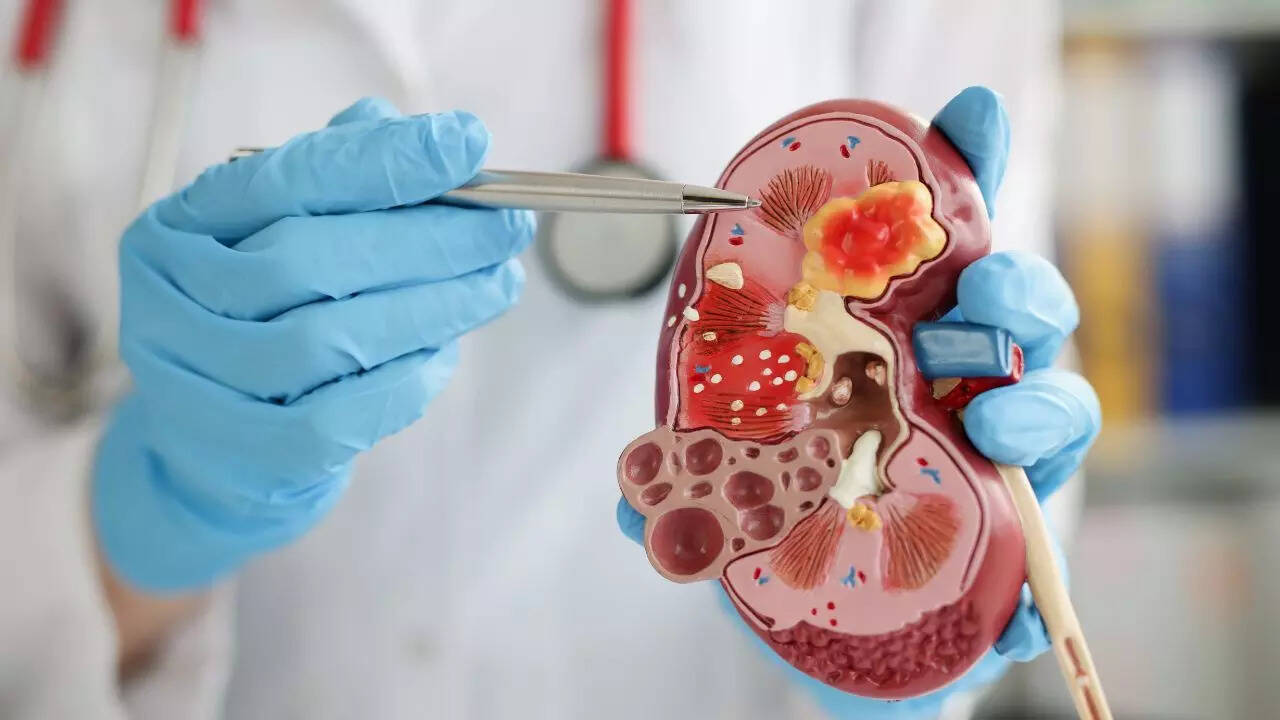
Kidney cancer occurs when cells in the kidney start to grow uncontrollably and form a lump or mass known as a tumor. This happens due to changes or mutations in the cells that cause them to multiply abnormally. Normally, cells grow and die in a regular way. But, in kidney cancer, they keep growing when they shouldn’t. These extra cells form a mass, and if it’s cancerous, it can spread to nearby tissues and other parts of the body. This spreading is called metastasis. Doctors aren’t sure what causes most kidney cancers, but certain risk factors like smoking, obesity, and family history can increase the chances. Often, kidney cancer doesn’t cause symptoms early on, which makes it hard to find until it has grown or spread.
‘Awareness is the Key to Healthy Kidneys’: Expert’s Vital Message on World Kidney Day
Symptoms of kidney cancer
In its early stages, kidney cancer often doesn’t cause any noticeable symptoms. As the disease progresses and the tumor grows, signs may begin to emerge. Because of this, kidney cancer is frequently diagnosed after it has started to spread.

- Blood in the urine, which may look pink, red, or cola-coloured (hematuria): This is often one of the first signs of kidney cancer and should not be ignored
- Persistent pain in the side or lower back (flank pain): The pain may be dull or sharp and doesn’t go over time
- A lump or swelling in the area around the kidneys: You may feel or notice a mass in your sides or lower back
- Ongoing fatigue or low energy levels: You may feel tired even after resting or getting enough sleep
- A general feeling of being unwell: This includes weakness, discomfort, or just not feeling yourself.
- Reduced appetite: You may not feel hungry or may eat much less than usual.
Unintentional weight loss : You may lose weight unintentionally without making any changes to your diet.- Mild but persistent fever: A low-grade fever that keeps coming back for no clear reason
- Bone pain (if cancer has spread): Pain in the bones may occur when cancer moves to other parts of the body
- Elevated blood pressure: Kidney cancer can affect how your kidneys manage blood pressure
- Low red blood cell count (anemia): This can cause you to feel weak, cold, or short of breath.
- High calcium levels in the blood (hypercalcemia): This may lead to nausea, confusion, or frequent urination
Also read | 12 effective ways to relieve migraine pain at home without medications














